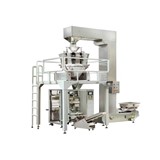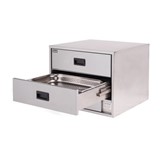But for the first time, we know exactly what we waste, how it is wasted, and where it goes.
Researchers from the University of South Australia have traced the cycle of food waste in a three-year study looking at the economic, environmental and psychological modelling of food waste.
Households are the worst culprits, accounting for more than half our food waste, with retail, restaurants, wholesalers and the education sector rounding out the top five.
"Now that we have identified the top food wasters, we can tailor programs to reduce food waste in each sector," says University of South Australia PhD candidate Christian Reynolds.
"Reducing household food waste has often proven difficult because the reasons for over-purchasing are not rational.
"To change this behaviour, we need to understand the economic and social factors behind food purchase, preparation, recycling and disposal."
But it's not all bad news. Adelaide people are some of the most resourceful recyclers of food waste: all metropolitan councils but one now collect food waste in kerbside green wheelie bins and turn it into compost.
And some families are creatively reusing their food waste, with an average of 3.2 kg of food waste per week per household being diverted to "informal disposal", such as backyard composting or pet chickens.
Adelaide resident Luigi Cirocco and his family are minimising their food waste by buying and cooking carefully, and composting or feeding scraps to chickens.
"We use compost to replenish the soil and a worm farm to harvest worm castings and the associated beneficial bacteria," says Cirocco.
"My two boys have grown up with their hands in the dirt, just like their grandparents Maria and Vincenzo who established our garden.
"We also keep six chickens, but I usually don't get to see the eggs – they get incorporated into value added products, like pasta or lasagna, by my mother-in-law Maria."




-160x160-state_article-rel-cat.png)





-160x160-state_article-rel-cat.png)
-160x160-state_article-rel-cat.png)


